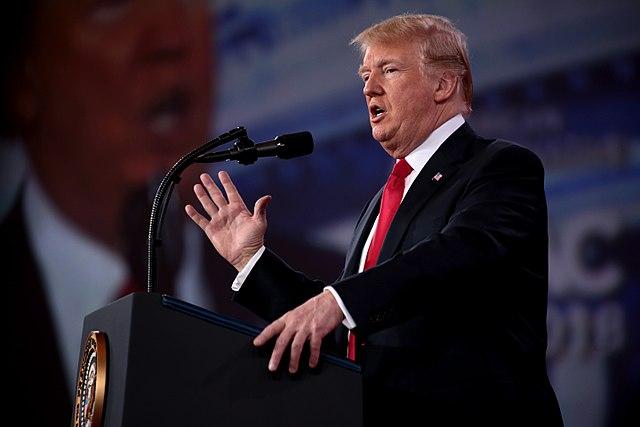
President Donald Trump’s meeting with North Korean dictator Kim Jong‑un—in addition to being a diplomatic extravaganza—has produced a document that will continue to be debated for months. While Trump supporters will tout it as a major achievement, his detractors will find that much of it is a repetition of earlier communiques signed by the two countries under former presidents Clinton, Bush and Obama that didn’t produce any results. The only new element is Trump’s announcement, and a concession to the North, that the US will stop its war games with South Korea to give the North a sense of security.
The important question to ask in this context is why President Trump is spending so much political capital chasing a Korean mirage when he has simultaneously reneged on a nuclear deal with Iran that had provided substantial concrete benefits to both parties. A simple explanation is that he wanted to undo what his predecessor had achieved in the case of Iran because of his visceral dislike for Barack Obama. He also wanted to bask in the glory of his own ‘achievement’ vis-à-vis North Korea, about which both his opponents and supporters were highly sceptical.
But, there’s more to it than that. The crucial element that nixed the Iran deal and made the North Korean one possible was the different postures of the two countries’ major neighbours, especially those important to the US for strategic or political reasons.
In the case of Iran, America’s two major allies in the region, Israel and Saudi Arabia, were firmly opposed to the JCPOA. Israel felt threatened that its nuclear monopoly could be undermined if Iran was able to keep its nuclear know-how and uranium enrichment capacity intact as a result of the deal.
Saudi Arabia, engaged in a fierce competition with Iran in the Persian Gulf and the broader Middle East, felt that its standing in the region would be severely eroded if Iran wasn’t forced to give up its nuclear enrichment capabilities that eventually could be used for military purposes.
Both have the ear of major American constituencies, including the White House and Congress. Israel’s clout in US domestic politics and Riyadh’s dominance of the oil market fed into Trump’s own prejudices against Iran and contributed to the American withdrawal from the deal.
The situation was reversed in the case of North Korea. If anything, South Korea—which would be affected by a nuclear deal more than any other state—was more interested in an American–North Korean rapprochement than even the Trump administration. President Moon Jae‑in of South Korea met with Kim Jong‑un twice in the run‑up to the Singapore summit to prevent the process from being derailed by irresponsible statements made by both sides. He also sent leading members of his government to Washington to persuade Trump to stay the course.
South Korea’s positive attitude towards a deal rested in part on President Moon’s concern to lower the strategic temperature on the peninsula and reduce any potential threat to his country. Given the geography of the country and the proximity of Seoul to the demilitarised zone, this was a genuine apprehension. South Korea would have to pay a heavy price if America’s relations with Pyongyang deteriorated and led to open warfare, even if that war remained conventional. South Korea’s attitude was also fed in part by its long-standing emotional commitment to reunifying the two Koreas, or at least normalising relations with North Korea.
Japan and China, the two other important neighbours of North Korea, were also interested in defusing tensions between Pyongyang and Washington. Japan was worried that it could become a target of North Korea’s newly acquired nuclear and missile capabilities in case of a military showdown between the US and the North.
China, North Korea’s principal supporter for a long time, was also interested in defusing tensions on the peninsula for two reasons. First, Kim Jong‑un was too much a maverick for China to control, and could easily drag the entire East Asian region into a conflagration that China would find difficult to avoid. Second, China’s policy of acting like a ‘frenemy’ of the US would be jeopardised if North Korean–American tensions spiralled out of control, hurting China’s economic growth as well its potential influence in the region.
The difference in regional factors, especially in the attitudes of America’s allies in the two regions, explains a great deal why President Trump decided to act in such a short period and in so contradictory a fashion towards Iran on the one hand and North Korea on the other.